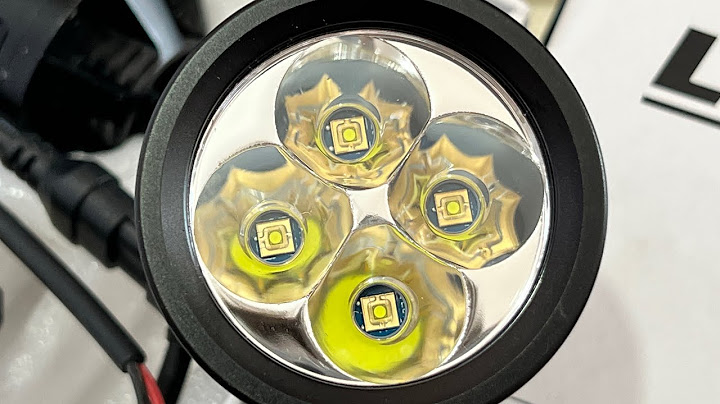QS Stars is a rating system that helps you select the right university based on your interests. It provides a detailed look at an institution, identifying which universities rate highest in the specific topics that matter to you, like facilities, graduate employability, social responsibility, inclusiveness, and more. Campus locations
48 boulevard Jourdan, PARIS, FR, 48 boulevard Jourdan , PARIS , France , 75014 If you're coming from a totally non-technical undergrad, there's no way in hell you'll get into APE. Fact. You should try your luck at a more cash cow-type programme. They're more likely to accept a more diverse range of candidates since they want your money. 5 years ago 1 Good 0 No Giod ! - Economist
4050
Both are going down like a Malaysian Airlines 777
5 years ago 0 Good 1 No Giod !
- Economist
8458
I'm the one who asked the question ,, until now nobody answered my question
I hope a decent person could answer my straightforward question
5 years ago 0 Good 0 No Giod !
- Economist
0e09
Here is some advice - go to the website and read the course booklets. There is one for the APE and the PPD.
You will find that the APE requires more theory courses (micro, macro and econometrics). Therefore, to get into the APE, you need to have taken economics to at least an intermediate level with decent grades (an A or first class). The APE also has a broader set of electives in the M2, so you will have more options for for specialisation (like micro theory, behavioural, macro/international) during and after the program.
The PPD does not have these theory sequences, and the courses are more applied. But if you are interested in development, and you prefer the PPD electives, it might be a better choice.
5 years ago 0 Good 0 No Giod !
- Economist
935b
APE is the hard one. Both have an extremely low admission rate tho
2 years ago 0 Good 0 No Giod !
- Economist
ca04
You absolutely need to look up something else, because PSE/TSE will not admit you with your law undergrad.
If you want to transition, look elsewhere. In the UK, a lot of programmes don't necessarily need Econ undergrad, but those are generally lower ranked places (don't even look at LSE/UCL/etc.). Other option you have is Humboldt (Berlin), you have a chance there and the level of their MSc is MILES above most 1yr MSc in UK (in fact you will really struggle to pass if you have zero background in calculus, linear algebra etc.).
2 years ago 0 Good 0 No Giod !
- Economist
7952
You absolutely need to look up something else, because PSE/TSE will not admit you with your law undergrad. If you want to transition, look elsewhere. In the UK, a lot of programmes don't necessarily need Econ undergrad, but those are generally lower ranked places (don't even look at LSE/UCL/etc.). Other option you have is Humboldt (Berlin), you have a chance there and the level of their MSc is MILES above most 1yr MSc in UK (in fact you will really struggle to pass if you have zero background in calculus, linear algebra etc.).
Wtf are you talking about? The LSE 2 year msc will absolutely take anyone that’s taken like, multivariate calc. So will Cambridge provided your GPA is high enough. Warwick had a diploma + msc that’s the same as the LSE 2 year.
The Paris School of Economics (PSE; French: École d'économie de Paris) is a French research institute in the field of economics. It offers MPhil, MSc, and PhD level programmes in various fields of theoretical and applied economics, including macroeconomics, econometrics, political economy and international economics.
PSE is a brainchild of the École des Hautes Études en Sciences Sociales (EHESS, where the students are enrolled primarily), the École Normale Supérieure, the École des Ponts and University of Paris 1 Pantheon-Sorbonne, and it is physically located on the ENS campus of Jourdan in the 14th arrondissement of Paris. It was founded in 2006 as a coalition of universities and grandes écoles to unify high-level research in economics across French academia, and was first presided by economist Thomas Piketty.
Since its foundation it has gained a certain amount of academic weight, and according to a ranking released by project RePEc in May 2020, it was ranked as the fifth-best university-level economics department in the world and first in Europe. Paris School of Economics' ranking has consistently risen since it was listed on the rankings on RePEc. Status[edit]Created in December 2006, the Paris School of Economics has the status of fondation reconnue d’utilité publique (a Public interest foundation). This status allows PSE to draw on both public and private funding.
PSE is one of the "Fondation de Coopération Scientifique" (Scientific Research Foundations), a new type of foundation created by the Government to develop centres of excellence in France. Scientific Research Foundations operate according to the same rules as Public interest foundations. The Paris School of Economics is administered by a Board of Directors consisting of representatives of the public and private partners, researchers, and outside personalities.
The Scientific Council consists of international researchers, external to PSE, of whom at least 50% work abroad. The Scientific Council evaluates the quality of both current and proposed teaching and research programmes. 3 Nobel Prizes laureates are members of the PSE Scientific Council.
Degree programs[edit]The foundation offers teaching through four Master programmes (APE, PPD, EDCBA, and Economics & Psychology) and a PhD Economics programme (within EDE-EPS). Master's programs[edit]
Master APE: Analysis and Policy in Economics
Master PPD: Public Policy and Development
Master EDCBA: Economic Decision and Cost-Benefit Analysis
Master Economics and Psychology
PSE in international rankings[edit]Its contributory economics faculties, including the Ecole Normale Superieure, École des Hautes Études en Sciences Sociales, the Ecole Polytechnique and ENSAE, are ranked between the top 13 among 53 departments worldwide by publication output of the top five scholars. According to the global economics departments ranking released in May 2020 by RePEc, Paris School of Economics was ranked at 5th worldwide, 1st in Europe. International partnerships[edit]NYU Provost David McLaughlin (middle); Ron Robin, NYUAD Senior Vice Provost, Francois Bourguignon, Paris School of Economics director
The Paris School of Economics has exchange students programs with some universities such as New York University or the University of California, Berkeley. It is also member of many exchange networks : Economic Behavior and Interaction Models (EBIM): Bielefeld University
European Doctorate in Economics Erasmus Mundus (EDEEM): Amsterdam University, Bielefeld University, Lisbon University, University of Louvain, Venice University
Programme doctoral européen en économie quantitative (EDP): Florence University, London School of Economics (LSE), Bonn University, Leuven University, Tel-Aviv University, Pompeu Fabra University
Policy Design and Evaluation Research in Developing Countries (PODER): Bocconi University, London School of Economics (LSE), Stockholm University, Namur University, Pompeu Fabra University, Cape Town University - Quantitative Economics Doctorate (QED): Alicante University, Amsterdam University, Bielefeld University, Copenhagen University, Lisbon University, Venice University, Vienna University
The World Inequality Report 2018 compiled by Facundo Alvaredo, Lucas Chanel, Thomas Piketty, Emmanuel Saez, and Gabriel Zucman was released on 14 December 2017 at the Paris School of Economics during the first WID.world Conference held on 14 December and 15 December, which was sponsored by the Paris School of Economics, the Institute for New Economic Thinking (INET), the Washington Center for Equitable Growth (CEG), the Ford Foundation, and the European Research Council. World Wealth and Income Database (WID), an open source database, which is part of an international collaborative effort of over a hundred researchers in five continents. The WID is an extension of the earlier World Top Incomes Database (WTID). Is the Paris School of Economics good?Paris School of Economics is one of the top universities in Paris, France. It is ranked 54 in QS WUR Ranking By Subject 2023.
How hard is it to get into Paris School of Economics?The Paris School of Economics acceptance rate for international students is 20%, making it possible for only a quarter of applicants and tightly selective. Therefore, it becomes mandatory for the students to clearly understand all the terms and requirements of acceptance. What is the ranking of the Paris School of Economics?It ranks first in Europe and sixth in the world among economics departments according to the RePEc rankings. Does Paris School of Economics require GRE?
GMAT or GRE score (optional): Admitted students usually have a quantitative score in the 90 th percentile, verbal score in the 80 th percentile and analytical writing score is at least 5.
|





















